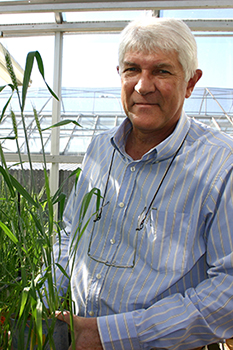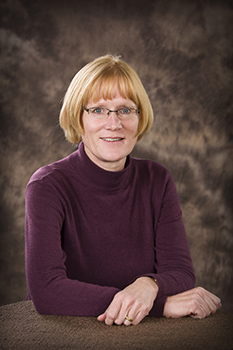
Prof Zakkie Pretorius
|
Prof Zakkie Pretorius and Prof Maryke Labuschagne, researchers in the Department of Plant Sciences at the University of the Free State (UFS), have been nominated for the 2016 awards of the National Science and Technology Forum (NSTF) in partnership with South32.
The NSTF awards recognise outstanding contributions to science, engineering, and technology (SET) and innovation for researchers and other SET-related professionals. The awards are referred to as the ‘Science Oscars’ of South Africa, as they are the largest, most comprehensive, and most sought-after national Awards of their kind. Among other things, the NSTF aims to celebrate, recognise, and reward excellence in science, engineering, technology and innovation within the SET sectors.
Prof Pretorius was short-listed as a finalist in the category: Lifetime Award for an outstanding contribution to SET and innovation by an individual over a period of 15 years or more.

Prof Maryke Labuschagne
|
He works on crop quality and disease resistance in the field crops research chair headed by Prof Labuschagne in the Department of Plant Sciences. Disease-resistance breeding is a continuation of the internationally-acclaimed wheat rust research that Prof Pretorius has been conducting during his career.
Prof Labuschagne is a finalist in the category: Special Award in Crop Science and Food Security. This is a special award by the NSTF this year, in honour of the 2016 International Year of Pulses, as declared by the United Nations.
Prof Labuschagne heads the research chair on quality and diseases in field crops at the UFS. Her research, and that of her students, focuses on the genetic improvement of food security crops in Africa, including such staples as maize and cassava.
At a Gala Dinner on 30 June 2016, the finalists will be honoured before the Minister of Science and Technology, the patron of the occasion, announces the winners of the 2015/2016 awards.